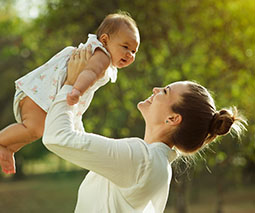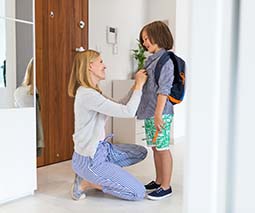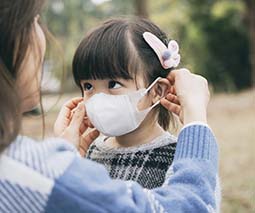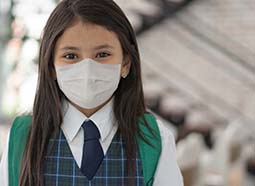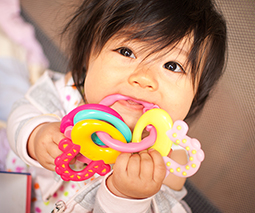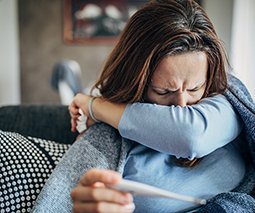When someone in the family is sick: How to talk to kids about cancer
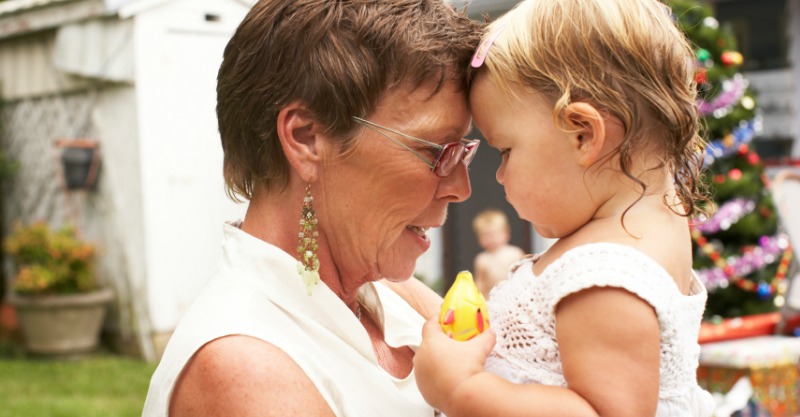
My mum was recently diagnosed with cancer, and at first, I didn’t plan on telling my kids about it. It seemed like too much of a burden to share with them; I wanted to protect them and keep the illness behind the scenes. Besides, the whole thing was such a shock to deal with that I didn’t think I could face telling them.
But that thinking didn’t last long. I mean, kids aren’t clueless, right? It was only a matter of time before they twigged something wasn’t right, and I couldn’t keep explaining mum’s hospital visits for tests and consults with little white lies. I knew I had to tell them, but where to begin? And how much was I meant to say?
With the dreaded c-word affecting so many families, I knew I wasn’t the only one to be wondering how to communicate about this with my children.
I decided to do some research to find out the best ways to get started.
Children have to know
Although it might be tempting to keep something like cancer hidden away, kids are going to realise something isn’t okay before too long, and this could leave them feeling unsettled and anxious, with no one to talk to.
It turns out this is one topic you can’t keep hidden from them. “Communication is critical for children who have someone that’s sick in the family,” agrees Dr Fiona Martin, Clinical Director of the Sydney Child Psychology Centre. “Sooner or later they’re going to find out, so it’s important that you have that openness.”
The reality is that children are going to notice something isn’t right, whether it’s by seeing you upset, hearing serious conversations in hushed tones, or wondering why a relative isn’t around like they used to be. This lack of understanding and communication can cause uncertainty and fear in children, especially if it includes a change in their usual routine.
“Children are so reliant on routine that when it’s disrupted – for example, someone else starts taking them to school – they need to know why and what’s going on,” agrees Dr Martin.
Read more about family health
- “Second-degree burns”: Mum’s warning after 4-year-old’s hot water bottle injury
- “I was bedridden for a week and my whole family was sick – here’s how I coped”
- What I realised when I was forced to stop being a mum
What to tell kids about cancer
When it comes to telling your kids that someone in the family is unwell, the advice is to be straightforward and honest – without overdoing it. “Tell the truth. Don’t sugar-coat it, but don’t be over the top about it either – talk about it in a really calm way,” advises Dr Martin. “Be clear with your words and use short sentences. For example, ‘Dad’s in hospital, having some tests. We’re not sure what’s wrong, but when we do know, we’ll tell you’. Try not to overwhelm them with too much information.”
Of course, what you share with your children will depend on the age and stage of development, but Dr Martin advises that if death is likely, you need to be honest with your children from the start. “If you know the prognosis, it’s best to work with that straight away in your communication to your children. If someone is going to die, it’s very important to talk to children about death.”
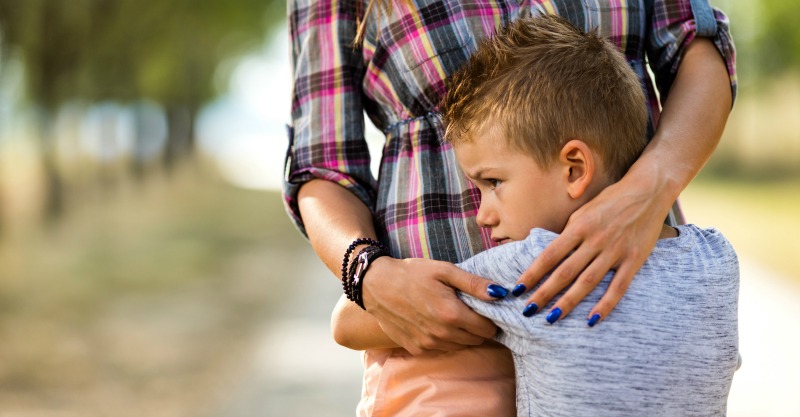
Time and place counts
Breaking this sort of news to your kids isn’t going to be easy, but there are ways to help it along. Pick a time where you can chat freely with your children, but avoid doing it right before you start something else when they can’t come back and ask questions. For example, telling them on the way to school won’t work, and bedtime isn’t the place to do it either. “The best time to tell them is when you won’t be interrupted or have to rush off, leaving unanswered questions,” advises Dr Martin. “Try bringing up the subject casually when you’re doing something else, like walking the dog.”
Dealing with questions
A lot of children may already have heard of cancer, so ask them what they know before you begin the conversation – you might be surprised. Depending on the age of your children, they’re likely to have a variety of questions for you. Young children may seem concerned about themselves because this is how their world is to them – at their developmental stage, the world revolves around them and they don’t see the bigger picture.
Questions like ‘Is it because of me?’ or ‘But what will happen to me?’ are quite normal to hear. If you’re worried about fielding questions you don’t really know how to answer, you can look into using the Camp Quality Kids’ Guide to Cancer App, a free, interactive program that supports kids with a parent or family member who has cancer.
Talking about treatment
Be honest about what your children should expect when it comes to cancer treatment, so they can be prepared for their loved one to look and feel different as they progress through treatment. Also, be sure to explain that it’s the treatment causing the side effects they might notice, such as hair loss, fatigue and nausea – not cancer itself.
Check in with your child regularly to make sure they’re feeling okay about everything that’s going on, and don’t forget; they’ll look to you for coping strategies. “As the parent, you’re the expert in understanding your children and their reactions can guide you,” advises Dr Martin. “How you cope with everything is often what they’ll feed off, they learn coping skills from you.”

Getting support for yourself
Because your children will follow your lead, it’s important to make sure you’re okay in all of this too, says Dr Martin. While it’s okay to be sad in front of your kids, it’s not ideal to break down and be an emotional wreck in front of them, and you can hardly support the wellbeing of your kids if you’re not coping yourself.
“You need to get some professional input here with something like this, for example, by reaching out to a psychologist who can help you and your child,” advises Dr Martin. “There are strategies that can be taught during sessions that can assist children to cope, like building resiliency skills, helping them to manage day to day and dealing with anxiety.”
Protecting family time
While your family is dealing with this huge situation, it’s important to stay connected and ensure your children feel close to you. Do your best to keep some family time sacred, such as a regular family meal or just snuggling on the couch with your children.
“Let them know they can talk about cancer with you at any time, so you’re offering a listening ear about the topic. Even tell them they can choose to tell their friends and teacher if they like, as this creates social support,” says Dr Martin.
Spending time together as a family also offers some stability for your child, when other parts of their world might be feeling out of control – and can probably help you along the way, too.
